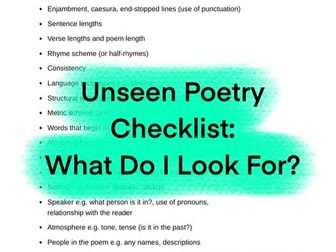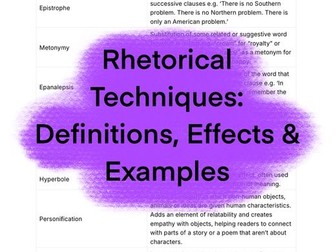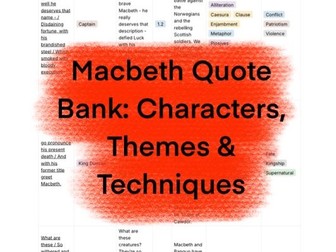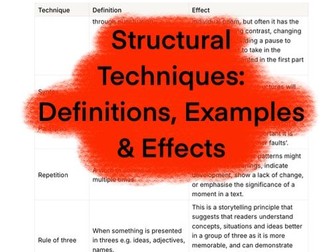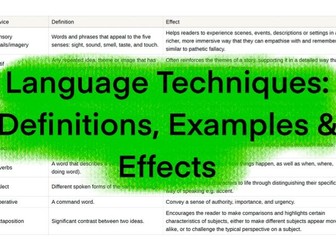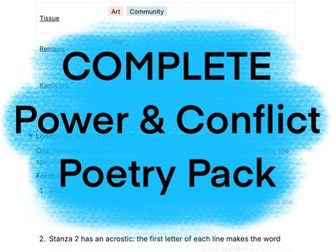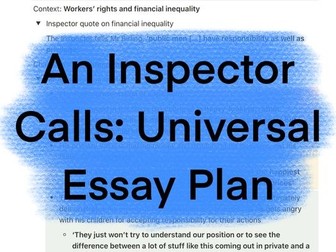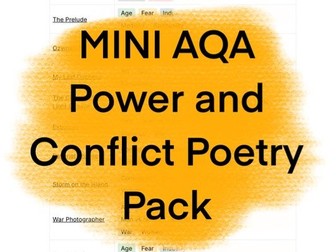Unseen Poetry Checklist: What to Look for and How to Analyse
<p><strong>Take the Mystery Out of Unseen Poetry!</strong></p>
<p>This clear and practical checklist is a game-changer for students tackling unseen poetry in GCSE and A-Level English exams. Designed to help students approach any poem with confidence, it provides a structured way to identify key features and analyse their effects, ensuring no marks are left on the table.</p>
<p><strong>What’s Included:</strong></p>
<p><strong>Comprehensive Checklist: A step-by-step guide to what students should look for in an unseen poem, including:</strong></p>
<ul>
<li>Language features (e.g., metaphors, similes, imagery).</li>
<li>Structural techniques (e.g., enjambment, caesura, stanza breaks).</li>
<li>Form and rhyme scheme.</li>
<li>Themes and tone.</li>
<li>Contextual hints within the poem itself.</li>
<li>Key Questions to Ask: Prompting deeper analysis and helping students think critically about meaning and effect.</li>
<li>Sample Framework for Writing: A clear outline of how to structure a response, making it easier for students to articulate their ideas.</li>
</ul>
<p><strong>Why Use This Resource?</strong></p>
<ul>
<li>Perfect for preparing students for English Literature exams.</li>
<li>Provides a consistent, reliable approach to analysing poetry.</li>
<li>Builds confidence in engaging with unfamiliar texts.</li>
<li>A useful revision tool for both teachers and students.</li>
</ul>
<p><strong>This checklist is a must-have for exam preparation and classroom learning, giving students the tools to demystify even the trickiest of poems.</strong></p>
